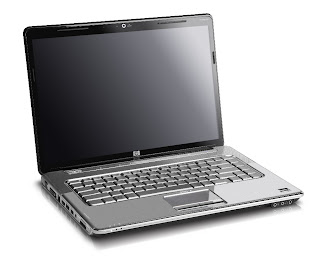 |
| IBM - Before they made computers (yes, they still make computers) they made these. |
They didn't even have the benefit of one of these 14 ton beauties. This is what I first learned to type on (no, I'm not that old, but it shows how underfunded schools were when I was growing up. Ok, I'm a little old). My inspirations didn't even have ballpoint pens. I guess they used quills? Now I'm really impressed.
But even with a 1960's state-of-the-art IBM Selectric typewriter, how did prolific authors compose their masterpieces in such a linear fashion?
I was thinking about the way I build my stories today while I was writing something (probably should have been concentrating more on what I was doing). I was working my way through a chapter, knowing that every brilliant idea for a certain scene just wasn't in my brain yet. But I'd grown tired of waiting for the creative bolt of lightning to come down from the sky and meld my fingertips to the keyboard. I needed to get some ideas down. I knew I could always come back later and chop out stuff, squeeze in new lines and cut and paste dialogue. There is truly no limit to the ways we can manipulate our written word these days.
Now imagine doing that using a typewriter. Let me save you young people some time. You can't do it. Can't even come close. You can change your mind about something if you're still on that line, are willing to eliminate completely everything you typed since the offending word or letter, and have a nice, full cartridge of correction tape installed on your Selectric.
Can you think of a better way to stifle creativity?
Man, have we got it good. I doubt twenty percent of what I type out in a first draft goes untouched in subsequent rewrites. How did the greats do it? Were our author forefathers and foremothers so talented and focused that the words just poured from their minds in the perfect, orderly sequence we find them in today in masterpieces such as ROMEO AND JULIET, THE RAVEN, and JANE EYRE?
Or is the truth that it probably took even the greats about fifty times longer to crank out these beauties than it would have taken them today with a laptop at their writing desks? And how much better could they have been? Well, probably not any better. But we might have gotten even more works out of them if they'd had the time-saving tools we have. That's assuming the struggle wasn't a component of the greatness. But compared to modern day writers, their whole lives were more struggle than most of ours will ever be. So they probably could have handled a little convenience and still been brilliant, fighting off scarlet fever and stuff.
I guess the point of all this is, I've taken a minute to appreciate that while writing can be trying, thankless, lonely, and frustrating at times, it's no where near the trial it would be without our modern conveniences. I read that George Lucas still writes all of his movie screenplays down on a yellow notepad. I love the original Star Wars, but if you've seen any of his movies since then, do I need to say more? Maybe his spelling and grammar are fine, but the guy could benefit from a 'dialogue checker' feature.
Computers don't make writers more creative, more in tune with their readers, or more insightful about the world around them.
But they sure do help shuffle all those words around (or shuffle those words all around. I'll decide later).

I have never (until your blog) read every blog post a person has written. I've laughed a lot. I hope you have an email sub link - if not, you should add one, you totally should, 'cause that's the only way I'll be able to properly keep up with you.
ReplyDeleteThanks for stopping by, Katy! I've added the 'follow by email button'. It shows up at the bottom of the page.
Delete